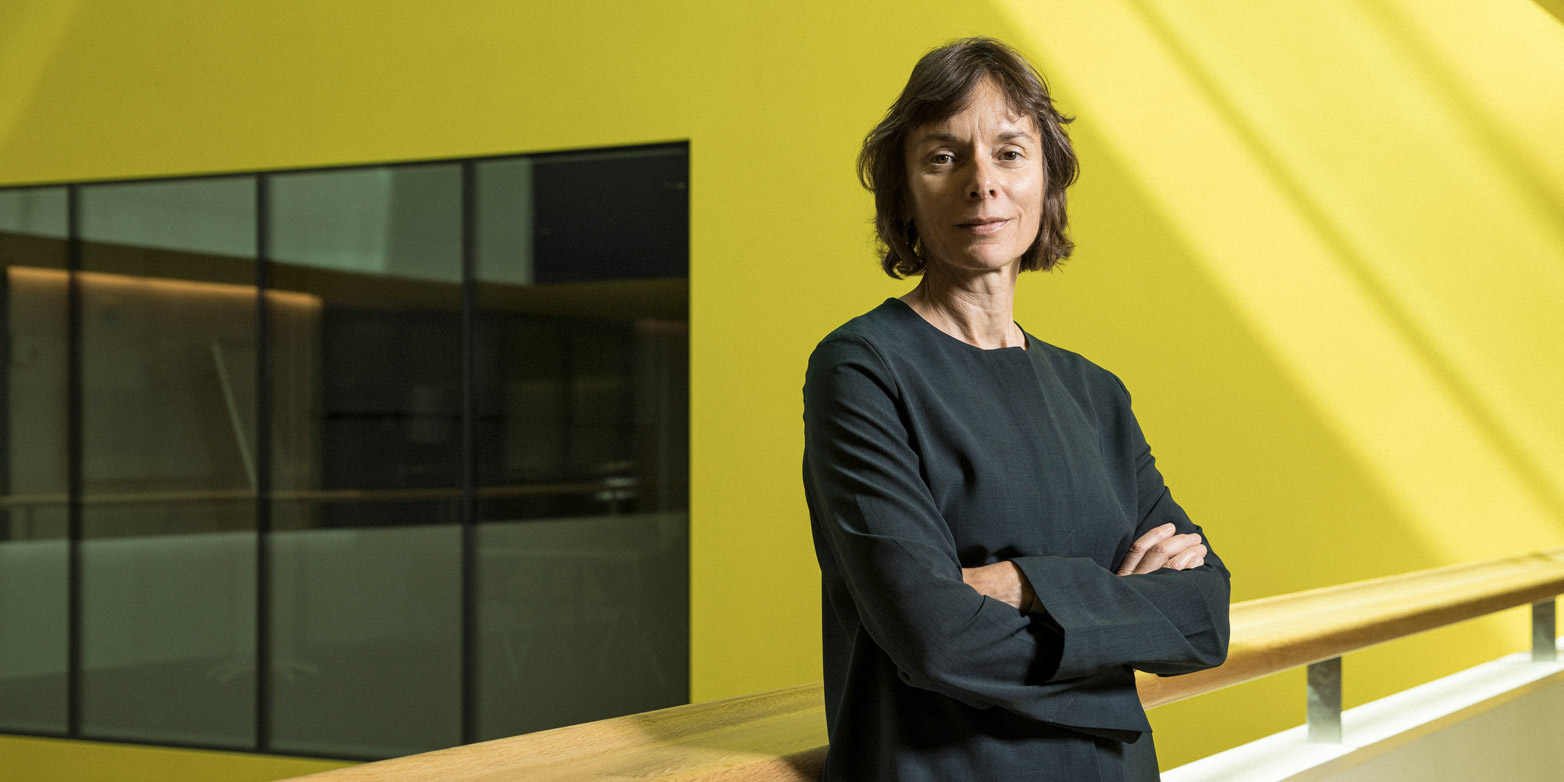Nicola Spaldin awarded Swiss Science Prize Marcel Benoist
Nicola Spaldin, Professor of Materials Theory at ETH Zurich, has been awarded the Swiss Science Prize Marcel Benoist for her outstanding research into multiferroic materials. Her work has laid the foundations for new ultrafast and energy-efficient data storage technologies.

Multiferroics are a new class of materials that respond to both magnetic and electric fields, a combination that does not generally occur simultaneously. This makes multiferroics promising materials that could, for example, replace silicon in future computer chips.
As a young scientist, Spaldin revitalised the field of multiferroics by using theoretical analysis and computer simulations to understand why multiferroics are so rare and to design new multiferroic materials. Her pioneering work has paved the way for the development of electronic devices with entirely new architectures and greater energy efficiency. Potential applications include ultra-fast computers, tiny data storage units and precision medical measuring instruments.
For her outstanding contribution in the field of multiferroics, Spaldin has now been awarded the Swiss Science Prize Marcel Benoist. Federal Councillor Guy Parmelin personally informed Professor Spaldin about the award, and will present her with the prize of 250,000 Swiss francs in Bern on 7 November.
Basic research into new technologies
“It’s a tremendous honour to join the list of highly respected scientists who have been awarded the Marcel Benoist Prize. It’s a fabulous endorsement for my team of superb young researchers, and a recognition of the importance that materials play in improving many aspects of people’s lives,” says Spaldin.
And she adds: “Here in Switzerland I appreciate not only the excellent resources for my research, but also working with such skilled and motivated staff and students, as well as the positive and enthusiastic attitude of Swiss society both to engineering and education.”

After microbiologist Françoise Gisou von der Goot in 2009, Spaldin is the second woman to be awarded the Swiss Science Prize Marcel Benoist in the prize’s nearly 100-year history.
“We are delighted to honour Nicola Spaldin for her excellent research in a highly innovative field of the natural sciences. Her curiosity and perseverance make her a model for the entire scientific community, in particular for young scientists,” says Federal Councillor Guy Parmelin, Chairman of the Marcel Benoist Foundation.
For Detlef Günther, Vice President for Research and Corporate Relations at ETH Zurich, the award is a great pleasure: “Nicola Spaldin is an outstanding researcher. She has redefined an entire field of research and is an inspiration for many scientists. I am very pleased that her impressive achievements have been honoured with the Marcel Benoist Prize.”
The Marcel Benoist Foundation has awarded Switzerland’s most prestigious science prize in recognition of outstanding research of importance to human life since 1920. Ten laureates have gone on to receive the Nobel Prize.

In the ETH Podcast Nicola Spaldin talks about her sparking energy and motivation to teach and research and her passion for the clarinet.
Short biography of the prize winner
Nicola Spaldin was born in the UK in 1969 and studied natural sciences at the University of Cambridge. In 1991, she moved to California where she obtained a PhD in chemistry from UC Berkeley in 1996. She then completed a postdoctoral fellowship at Yale University. She went on to work as an assistant professor at the University of California, Santa Barbara from 1997 to 2010, becoming a full professor in 2006. In 2011, she moved to ETH Zurich, where she has since been working as Professor of Materials Theory. Professor Spaldin has received numerous awards in teaching and research, including the Körber European Science Prize in 2015 and the L’Oreal–UNESCO For Women in Science Award in 2017.
Comments
No comments yet